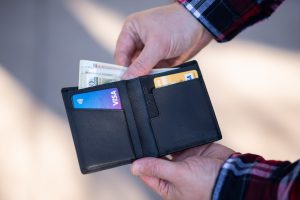Forex, or foreign exchange trading, is a global market where currencies are bought and sold. Because forex trading involves buying and selling currencies across different countries, it’s important to understand how taxation works in this field. In this article, we’ll be discussing how to tax forex, focusing on the United States tax system.
Forex traders are subject to different tax laws depending on where they live and operate. In the United States, forex traders are subject to complex tax rules that are quite different from other financial markets. Forex trading is considered an ordinary income, and therefore it’s taxed at the applicable income tax rate.
In the United States, forex traders file taxes separately from their regular tax returns. They must file a Form 1040, Schedule C, and Form 8949 for their forex trading activity. The Schedule C form is used to report business income and expenses, while the Form 8949 is used to report capital gains and losses.
Forex traders must report all their trading activity to the Internal Revenue Service (IRS), including gains and losses. The IRS requires traders to use the specific identification method to determine their gains and losses. This means that traders must identify the specific currency that they sold to determine their profit or loss.
Forex traders can also elect to use the Section 1256 treatment, which is a more favorable tax treatment. This treatment allows traders to have a lower tax rate on 60% of their gains and losses, while the remaining 40% is taxed at the ordinary income tax rate.
Forex traders must also be aware of the wash sale rule. The wash sale rule applies when a trader sells a security at a loss and then buys the same or a substantially similar security within 30 days before or after the sale. If this happens, the trader cannot claim the loss on their taxes. The wash sale rule also applies to forex trading.
Forex traders must also be aware of the mark-to-market (MTM) election. This election allows traders to use the MTM accounting method, which means that they can treat their trading activity as if it were a business. This allows traders to deduct business expenses from their taxes, which can result in a lower tax bill.
To qualify for the MTM election, traders must meet certain requirements. They must trade frequently, have a profit motive, and use the election in the year they begin trading. Once the election is made, it’s irrevocable unless the trader meets certain criteria to revoke it.
In conclusion, forex trading is subject to complex tax rules that vary depending on where traders live and operate. In the United States, forex traders must file separate tax returns, report all their trading activity, and use the specific identification method to determine their gains and losses. They can also elect to use the Section 1256 treatment or the MTM election to lower their tax bill. It’s important for forex traders to understand these rules and work with a tax professional to ensure compliance and minimize their tax liability.





